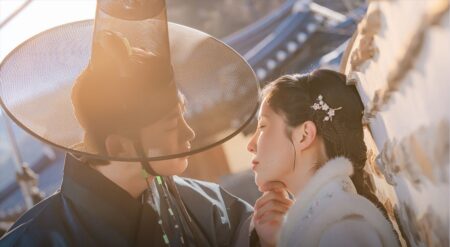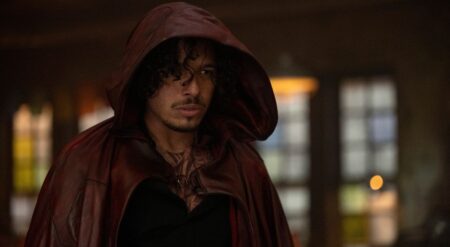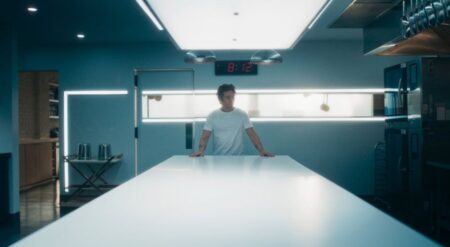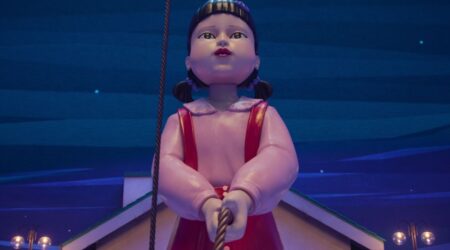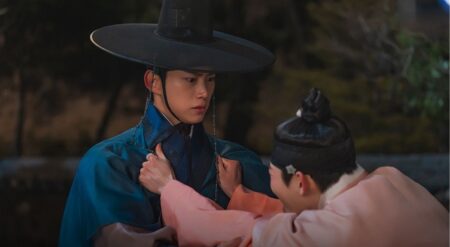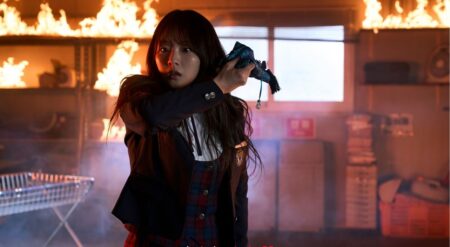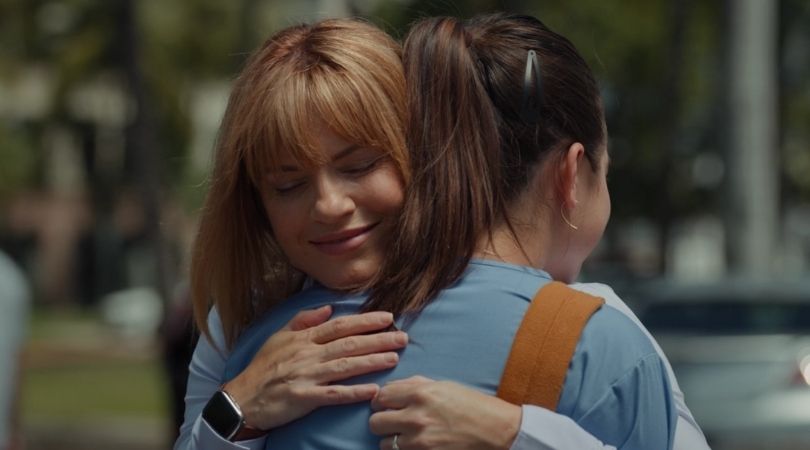
Doogie Kamealoha, M.D. is a medical comedy and coming of age Disney+ Original series starring Peyton Elizabeth Lee as teenage doctor prodigy Lahela, balancing her life as a medical professional and a 16-year-old. Now that the show has stopped trying so hard to prove its Hawaiian bona fides with jokes about race and, in so drawing attention to its problematic casting of a non-Hawaiian star, it has instead just left me confused about the core message of the show. Doogie Kamealoha MD Episode 3 sees Lahela playing the hero and getting a lot of attention from some people, anyway.
Where the pilot hit a number of pretty heavy emotional beats that had me rather impressed, Episode 2 fell upon some of my least favorite tropes. There are two plots in this episode; the first is about Lehela’s feeling like her parents, played by Kathleen Rose Perkins and Jason Scott Lee, aren’t respecting her teenagehood despite literally being capable of saving people’s lives as a doctor and her barely older brother getting away with basically anything. The second sees Brian Patrick (Wes Tian), Lehela’s younger brother, joining a hula class because of a girl, getting his dad very excited and invested.
The A-plot in Doogie Kamealoha MD Episode 3 is at first reflective of very typical teenage life. I actually like that the show let an otherwise very by-the-books kid have a chance to live a little. I’ve certainly never seen a kids’ show where the main characters do the wrong thing and get away with it with no consequences. It reminds me of a classic Boy Meets World episode where Cory’s dad lets him stay up way too late to finish watching a Philly’s game after disappointing him previously. But then Cory falls asleep in class, and it’s actually his dad who ends up learning the lesson from Mr. Feeny that sometimes, doing the wrong thing is actually right because that time together is more important than one day of history class.
The only thing is there’s no Mr. Feeny in Doogie Kamealoha, M.D. The only lesson learned is that when an eccentric weather reporter tells you to live a little, maybe you should listen. He’s not wrong. It just feels strange and not the most satisfying ending. I’d almost have preferred if Lahela’s parents found out what she did after she thought she got away and said it was fine; she should live a little, just don’t make a habit of it.
As for the B-plot, this was hard too. On the one hand, I absolutely adore Benny; he is such a great father, and Lee is a very fun actor to watch. He’s often the funniest part of an episode. I love how there are so many things he does, like encouraging Brian Patrick to hula or owning a flower business that subverts a type of masculinity I could easily see his character having been written with instead. But then he says things like “being a real man” or assuming that Brian Patrick is at the hula class to flirt with girls is bringing energy to his masculinity that I don’t appreciate. The fact that Brian Patrick’s only characterization so far is that he’s always trying to get the girls is uncomfortable given his age and how much better we could be doing teaching young kids, especially young boys, that gender and sex are non-essential and that the world doesn’t revolve around coupling off.
Doogie Kamealoha MD Episode 3 has me invested in continuing to watch, but more so to find out if it will get any better than because it’s so good. I liked parts of the episode’s two plots but really didn’t like others. The show confounds me as I cannot tell what its central message is meant to be besides Lahela trying to balance work and social lives. That’s not a bad point, but it’s not clear yet how the show feels about that question itself yet.
Doogie Kamealoha, M.D. is streaming now on Disney+ with new episodes each Wednesday.
Doogie Kamealoha, MD Episode 3 - "License to Not Drive"
-
Rating - 7/107/10
TL;DR
Doogie Kamealoha MD Episode 3 has me invested in continuing to watch, but more so to find out if it will get any better than because it’s so good. I liked parts of the episode’s two plots but really didn’t like others. The show confounds me as I cannot tell what its central message is meant to be besides Lahela trying to balance work and social lives. That’s not a bad point, but it’s not clear yet how the show feels about that question itself yet.

